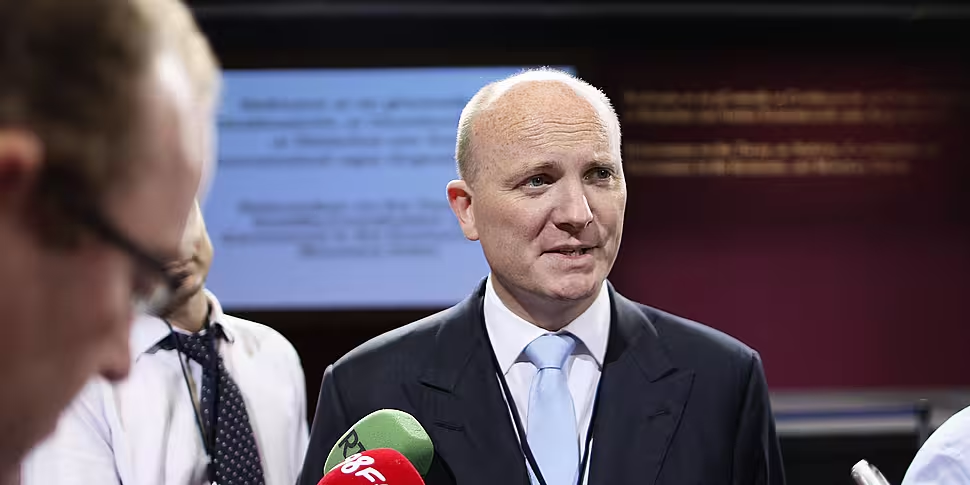Businessman Declan Ganley says Ireland should hold out against a global minimum corporate tax rate.
The Government is under pressure to sign up to a deal agreed by 130 OECD countries, that would set a corporate tax floor of 15%.
However efforts to raise the country's 12.5% rate have been long resisted.
Speaking in New York on Monday, Taoiseach Micheál Martin said he could not commit to the current rate remaining as it is.
But he added that Ireland is "engaging in the OECD process in a constructive way, and we want certainty and we want continuity".
While Tánaiste Leo Varadkar has said Ireland cannot commit one way or the other on the issue.
He said: "I think we'd certainly prefer to be part of an international agreement.
"Ireland is not a tax haven nor do we wish to be seen as a tax haven.
"So we'd certainly prefer to be part of an international agreement - and certainly from my discussions yesterday and in Paris a few weeks ago, other countries want us in.
"But that gives us a little bit of leverage, a little bit of negotiating power".
Mr Ganley told The Hard Shoulder our low rate is something we are well known for.
"The fact is is that our low corporate tax rate is something that Brand Ireland is famous for.
"You can like that or not like it, but I'm speaking to you right now from Washington DC - and when you're at business events, wherever they are, it's something that everybody knows and refers to.
"So while it may not be the only thing - or the end thing - that attracts people to Ireland, it is the thing that everybody knows.
"It's sort of a big, positive, selling point."
"And the problem with the OECD drive is it is a drive to tax harmonisation around the world, and tax harmonisation will be a disaster for economies like Ireland's.
"We are not centrally located in a land mass, we're not connected to rail networks - we have to create competitive advantages in other ways."
'Guarantees against interference'
Mr Ganley says while the tax card "is not only card, it's an ace - and we cannot give it up - furthermore, it's a protected ace".
And he says Ireland was given assurances in the Lisbon Treaty.
"Ireland was given guarantees that there would be no interference in its tax affairs or sovereignty.
"That was ratified by the European Parliament a while after the referendum was passed.
"It was then ratified by every member state parliaments of the European Union".
Acknowledging the OECD is a different entity, Mr Ganley says: "The application is that we have guarantees to guard and protect against interference of any kind from every member state of the European Union and from the EU itself.
"The point I'm making is... there have been all too frequent statements and comments made targeting Ireland's tax competitiveness."
And he believes Ireland should fight to keep its rate.
"If anybody thinks that tax harmonisation is going to be good for the Irish economy, they are sorely mistaken.
"We have to keep this tool as a tool of our competitiveness.
"The fact that it looks like, or certainly there is a move to increase our corporate tax rates, is not something that originated in Ireland.
"It came from people outside of Ireland, and I suggest that we need to fight much harder to protect our tax sovereignty, given the competitive position that we are in.
"And we should use every tool available to us to do that".









